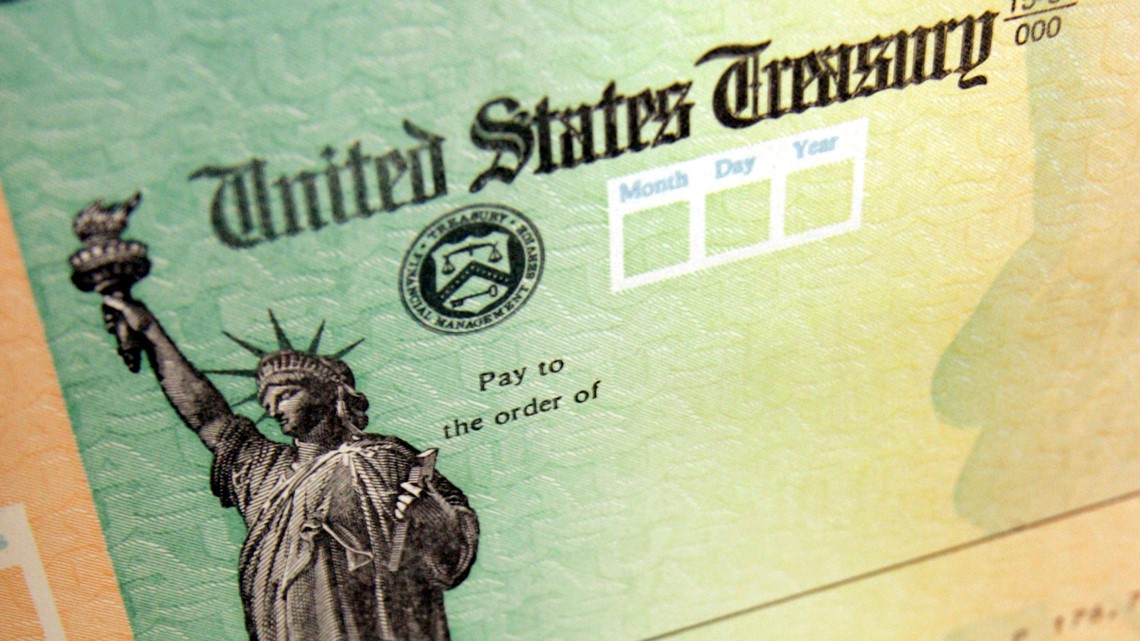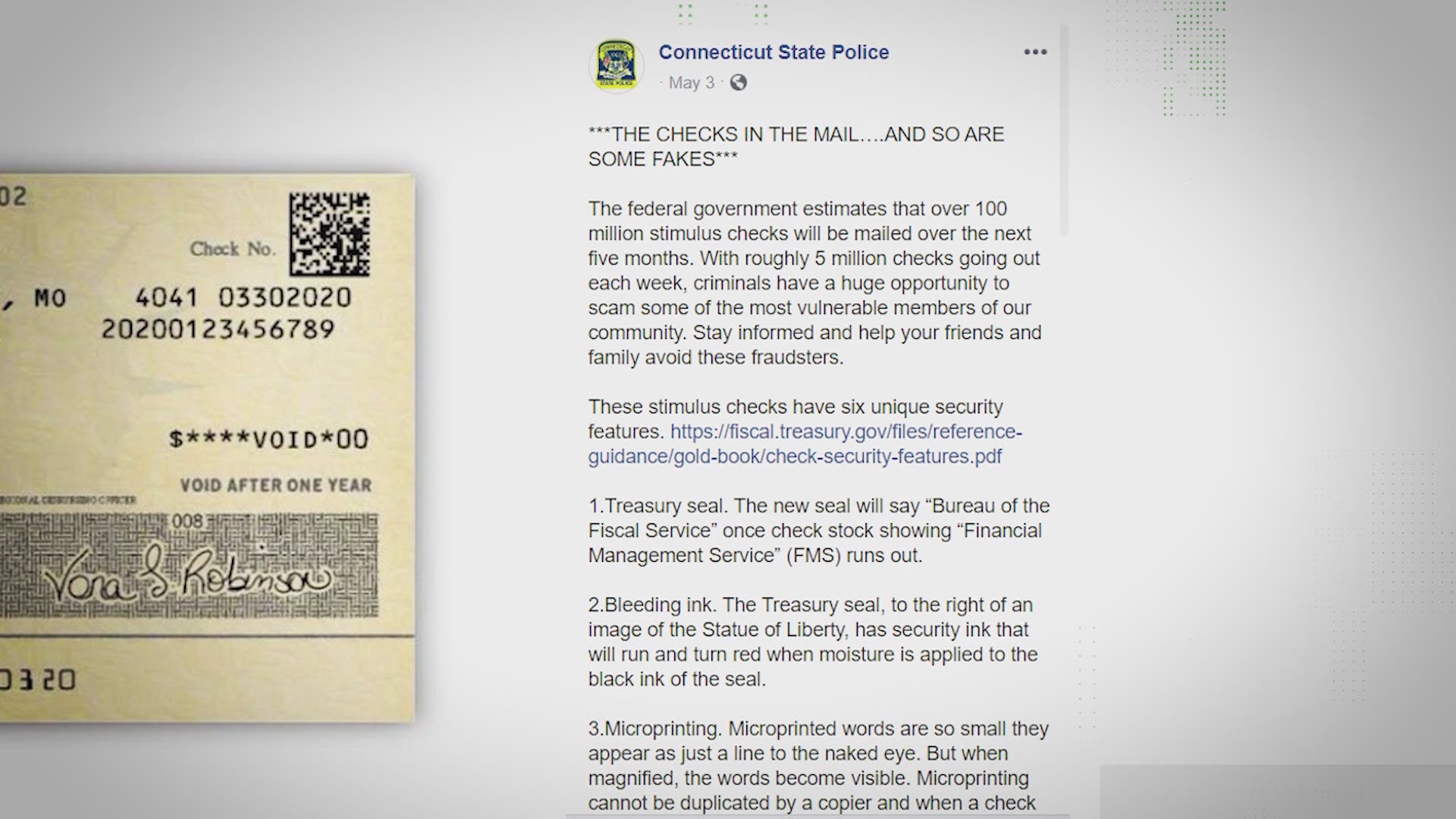WASHINGTON — Some Americans expecting a certain amount from their coronavirus stimulus may be getting less than expected. The IRS on Monday released some details explaining what could be behind that.
Under the $2.2 trillion rescue package passed in March, Americans who file their taxes individually will get $1,200 if they made up to $75,000. Couples who file together and made up to $150,000 would get $2,400. The amount goes down as income goes up, with a cap of $99,000 for single filers and $198,000 for couples. There's also an additional $500 for each child under the age of 17.
Here are scenarios the IRS says may cause you to receive a lower payment than expected.
The IRS may be going off a different return than you think
If you have already filed your 2019 return and the IRS has processed it, then your stimulus payment is based on your 2019 income. But if the IRS has not processed your 2019 return, then it will base the payment on your 2018 return and income.
If you made more in 2018 than in 2019, then you might get less money back if your 2019 return is not processed. And if you had a child in 2019 but not in 2018, then the IRS would not give you that $500 credit if it's going off the 2018 numbers.
The IRS notes that just because you have turned in your 2019 return does not mean it's been processed.
Claimed dependents are not eligible for an additional $500 payment
You can only get the $500 for a child who is eligible for the annual Child Tax Credit.
"To claim the Child Tax Credit, the taxpayer generally must be related to the child, live with them more than half the year and provide at least half of their support," the IRS says. Children who are not U.S. citizens are not eligible. If the child is 17 or older for the tax year that the IRS is using, then they also are not eligible.
Parents who are not married to each other and do not file a joint return cannot separately claim the child. Only the parent that claimed the child as a dependent on their return will get the $500.
"When the parent who did not receive an additional payment files their 2020 tax return next year, they may be able to claim up to an additional $500 per-child amount on that return if they qualify to claim the child as their qualifying child for 2020," the IRS says.
College students and people 17 and older who are dependents
College students do not qualify for the stimulus payment if someone can claim them as dependents. The same goes for anyone age 17 and older who is dependent.
"However, if the student cannot be claimed as a dependent by their mother or anyone else for 2020, that student may be eligible to claim a $1,200 credit on their 2020 tax return next year," the IRS said.
Past-due child support was deducted from the payment
The stimulus will be offset if there is past-due child support.
"For taxpayers who are married filing jointly and filed an injured spouse claim with their 2019 tax return (or 2018 tax return if they haven't filed the 2019 tax return), half of the total payment will be sent to each spouse. Only the payment of the spouse who owes past-due child support should be offset," the IRS says.
Garnishments by creditors
The IRS says the stimulus is not protected from garnishment by creditors once the money is deposited into the bank.
If your stimulus payment is wrong
The IRS says double check your eligibility requirements.
Many taxpayers who received less than expected may qualify to receive more money early next year when they file their 2020 returns. The IRS says to keep the letter you receive in the mail after your payment is issued in case you need to refer back to it in 2020.
One last thing
The IRS reminds you that the stimulus is not taxed, which means you do not have to declare it as income on your 2020 return.



